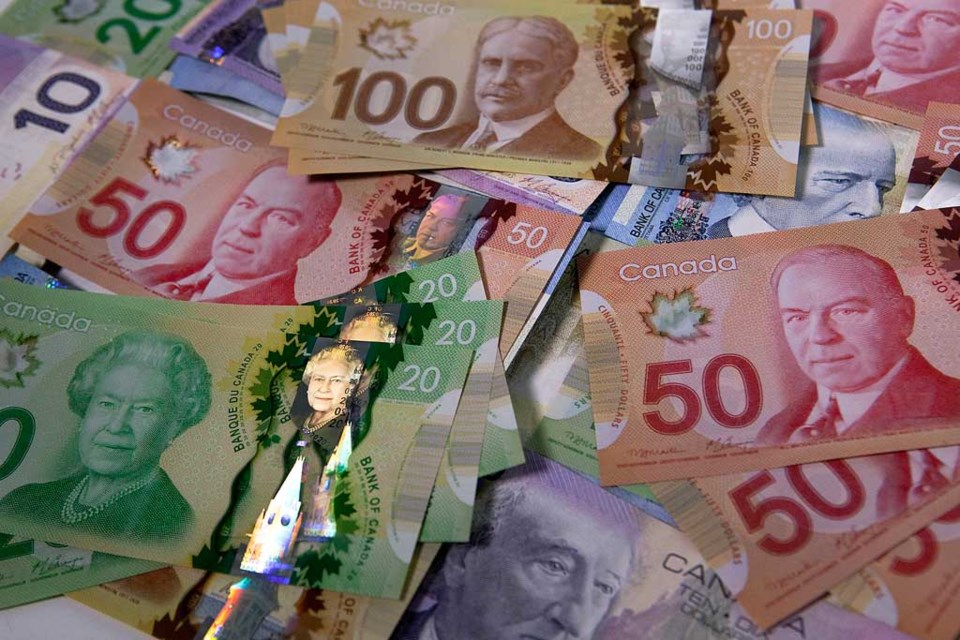 He was looking proud of himself when I joined him at the coffee shop.
He was looking proud of himself when I joined him at the coffee shop.
“I quit my job,” he announced. “No more selling my soul. No more sacrificing my principles. I’ve stopped taking his money.”
I nodded my approval: “Good for you. Cut those strings. Be independent.”
“So,” he continued, “I’ll be needing you to pay me $5 million.”
I spewed my coffee. “Why?”
He rolled his eyes, as though the answer were obvious: “You can’t expect me to support myself.”
Um, actually, I could. For years he had talked about walking away from the boss man’s cash. Hadn’t uttered a word about me picking up the tab, though.
Which is how B.C. taxpayers feel today. The New Democrats and Greens have long promised to ban corporate and union donations to political parties, but it was only this week, in a Campbell-esque post-election surprise (“What, didn’t I mention the HST?”) that we heard the loss of the money would be offset by a temporary public subsidy that will cost taxpayers $16.4 million over four years.
Which leads to a basic question: since when has Big Money vs. Taxpayer Subsidy been an either-or proposition?
Since 2003, actually. That’s when one of Liberal Jean Chrétien’s last acts as prime minister was to not only ban corporate and union donations but replace them with a $2-per-vote taxpayer-funded subsidy. That subsidy was phased out by Stephen Harper after the Conservatives — less dependent on the per-vote money than other parties — won a majority in 2011.
Harper left a much deeper trough from which to slurp, though: Elections Canada (that is, the taxpayer) refunds half the campaign expenses of federal parties and 60 per cent of the expenses of candidates.
Not only that, but Harper ensured taxpayers would be stuck with an even bigger bill when he pushed through the Fair Elections Act (who named it, George Orwell?), which effectively removed spending limits by tying them to the length of the campaign. That’s why the 2015 election dragged on for 78 days instead of the standard 36. It allowed the wealthy parties to spend more money, triggering a higher rebate.
Elections Canada says taxpayers reimbursed federal parties $64 million after that campaign, up from $33 million in 2011. In addition, individual candidates received a total of $38 million, a big jump from $26 million in 2011.
Also, the public pays indirectly for breaks given to donors — tax credits of up to $500 for those who give to registered provincial parties in B.C., and up to $650 for those who contribute to federal parties.
Contrast that to what happens at the municipal level: nothing. Unlike donors to provincial parties, people who give to council candidates get no tax benefits at all.
Likewise, the candidates themselves get no public subsidy. In the 2014 Victoria mayoral race, when Dean Fortin’s campaign costs were $128,636, Lisa Helps’s were $88,564 and Ida Chong’s were $108,120, none of their expenses were subsidized by the taxpayer. Nor did their donors get tax deductions.
(By the way, there’s no limit on who can make donations at that level, but when the next local elections are held in October 2018, municipal candidates will face spending ceilings for the first time.)
If the municipal candidates can stand on their own two feet, why can’t those at the federal and provincial level? Why should your tax dollars subsidize political parties you don’t support? (Really, it’s like a Canucks fan being forced to help the Boston Bruins pay for Brad Marchand’s contract.)
This should have been an easy win for the NDP and Greens. Wiping out the practices that have long left B.C.’s Liberals looking like a rent-a-party, one that put donors’ interests ahead of those of ordinary people, was a no-brainer. (Times Colonist editorials first used the term “Wild West” to describe B.C. campaign financing in 2015.)
Instead, the focus is on the subsidy, the surprise trip to the trough.



